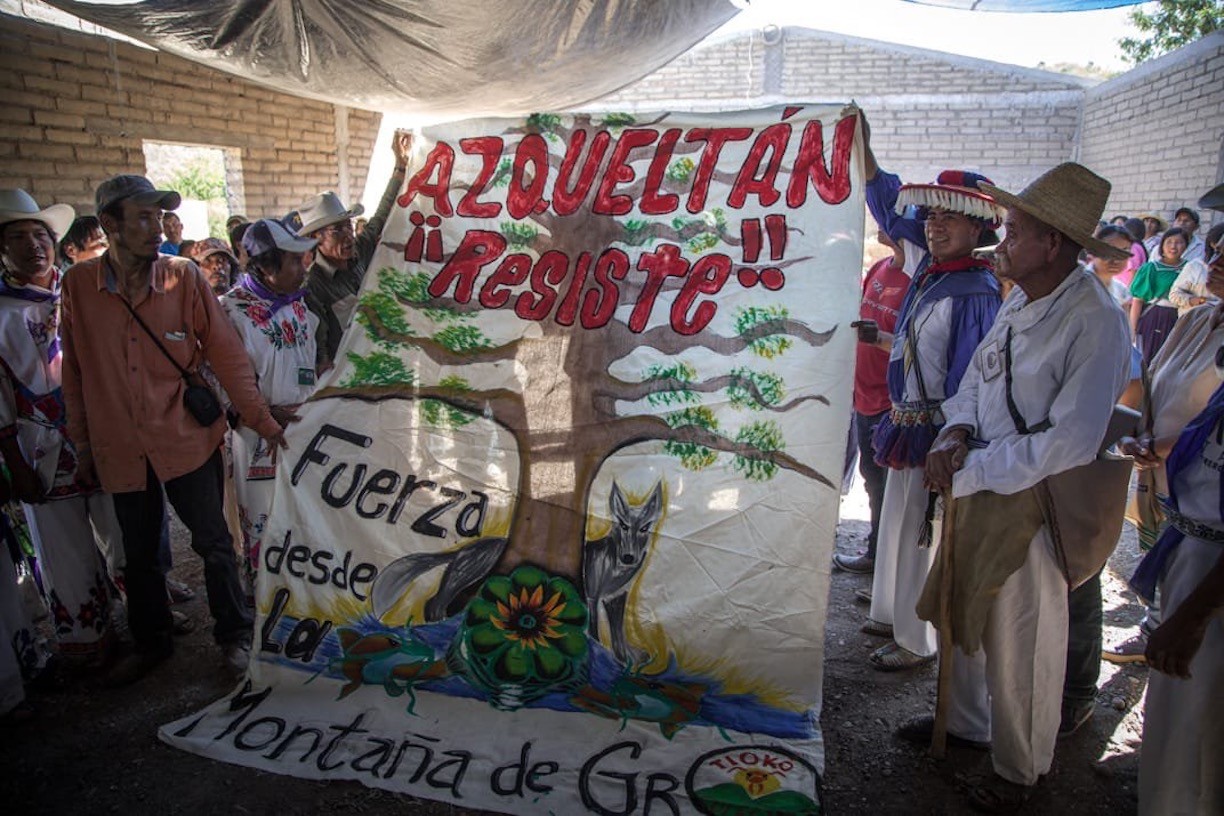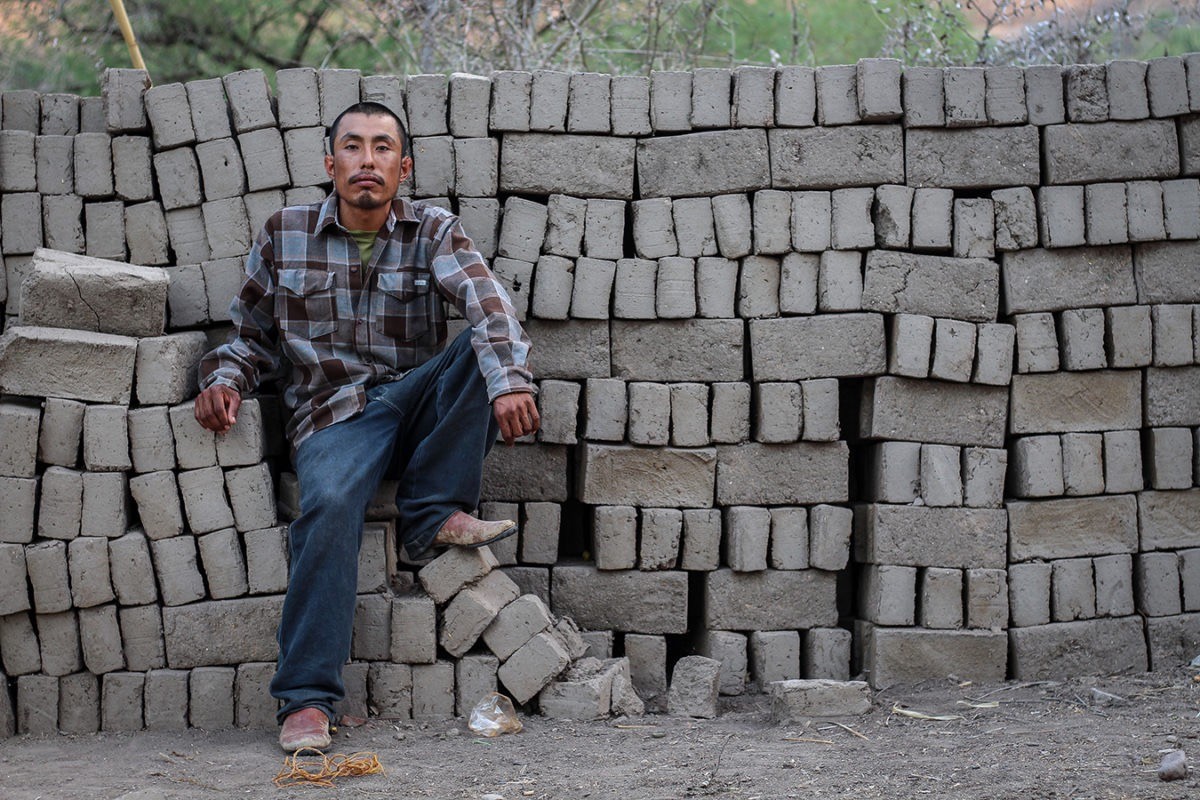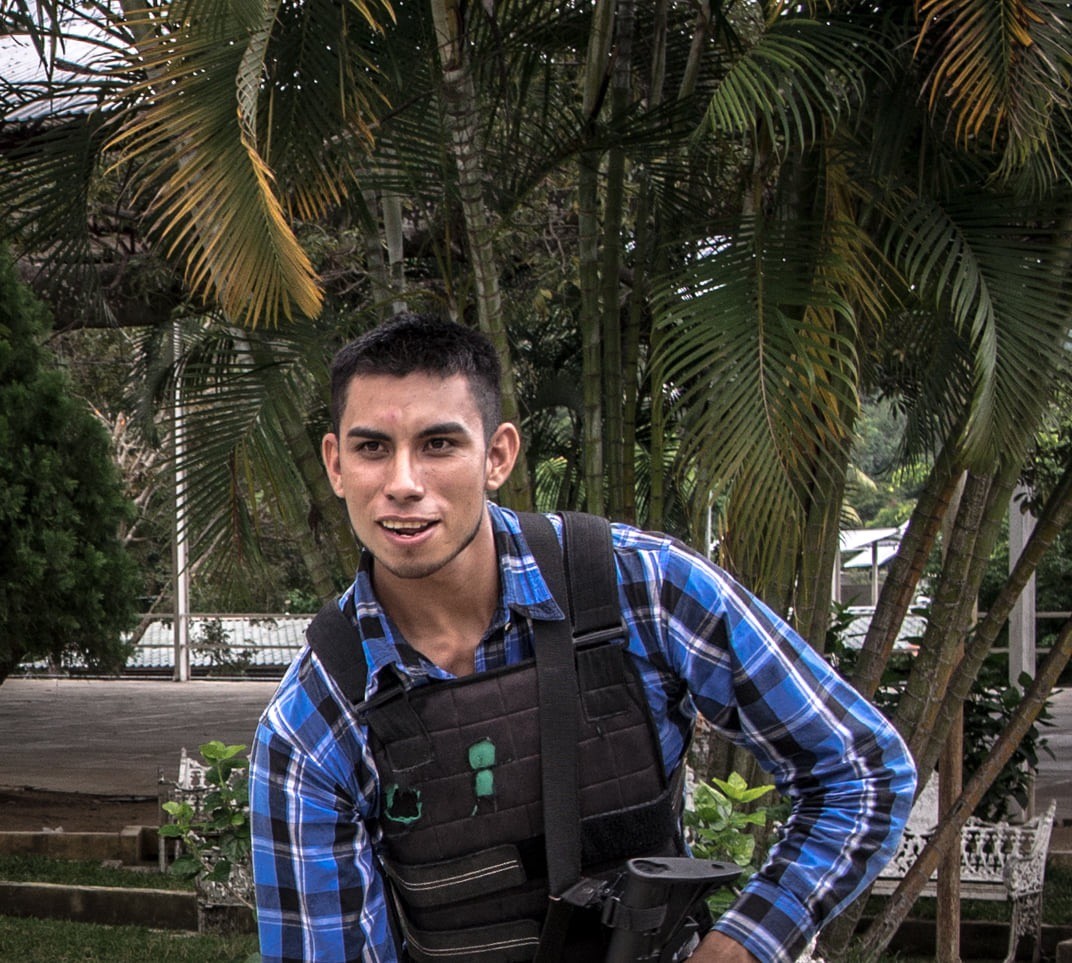Filed under: Indigenous, Repression, Revuelta Comunitaria

This is the latest piece from our column, Revuelta Comunitaria, addressing recent weeks of violent repression against Indigenous resistance in various states of so-called Mexico.
While the president of Mexico, Andrés Manuel López Obrador, has recently been on a tour visiting the Indigenous regions of the country these last few weeks, theatrically proclaiming his administration’s support for Indigenous peoples grounded in an insidious project of state paternalism, Indigenous communities struggling for self-determination, autonomy and territorial defense have faced beatings, assassinations, kidnappings and arrest. The brutal violence against Indigenous communities in resistance in recent weeks is the natural expression of a political-economic system grounded in relations of dispossession, domination and exploitation, in the ruthless pursuit of profit, in the theft of Indigenous lands, in the imposition of megaprojects, in the necessity to squash community self-organization and dissent.
The Indigenous Wixárika and Tepehuana community of San Lorenzo Azqueltán, Jalisco, following years of community organization in defense of their communal territory, continue to face violent aggression at the hands of capitalist interests. On November 3rd, an armed group led by local caciques (political bosses) attacked and beat comuneros and agrarian authorities from the community, kidnapping Ricardo de la Cruz González, the President-elect of the Security Council of the Autonomous Commission of Communal lands. After being seriously beaten, Cruz González was left on the highway connecting Villa Guerrero and Azqueltán. He was eventually rescued by members of the community and taken to a hospital in Zacatecas where he was treated for a damaged lung that came as a result of the attack.
That same day, a convoy of three vehicles chased down another vehicle carrying agrarian authorities and comuneros of Azqueltán, who were traveling together. There, comunero Rafael Reyes Márquez was brutally beaten, suffering serious head contusions. He too was taken to the city of Zacatecas for medical treatment. Another compañero, the President of the Autonomous Commission of Communal Lands, Noé Aguilar Rojas, was beaten unconscious and kidnapped, only to be later admitted to the hospital of the municipality of Colotlán, Jalisco in serious condition, with a stab wound to his head. The community has specifically named Fabio Ernesto Flores Sánchez, Javier Guadalupe Flores Sánchez and Mario Flores as the caciques responsible for the attacks.

Noé Aguilar Rojas, President of the Autonomous Commission of Communal Lands in San Lorenzo Azqueltán, who was kidnapped and severely beaten on November 3. Photo Mario Marlo
The violence against the autonomous agrarian authorities and comuneros in Azqueltán follow a pattern of assault in the community in recent years, seeking to destroy any sense of communal organization, which has integrated autonomy and self-determination into their struggle for territorial defense. On November 9th and 10th, 2013, San Lorenzo Azqueltán hosted the First Western Gathering of the National Indigenous Congress (CNI), where they celebrated the formation of an Autonomous Commission of Communal Lands. This was a decisive step forward in the strengthening of their struggle for territorial recuperation—an ongoing process to recover communal lands from private landowners. Furthermore, the autonomous land commission has been pivotal in putting into practice autonomous self-organization and self-determination of the Indigenous community.
As a result of the attacks carried out in early November, the community postponed indefinitely the 6th anniversary celebration of the formation of their autonomous agrarian authorities, which was scheduled to take place in November 9 and 10 in San Lorenzo Azqueltán, Jalisco.
On the coast of Michoacán, the Indigenous Nahua people of the municipality of Aquila, have been similarly been under attack from armed groups, in this case affiliated with the Jalisco New Generation Cartel (CJNG). The attacks have targeted the armed communal guard of Aquila—a self-organized, autonomous, community security force—and have sought to position drug cartel forces in control of San Miguel de Aquila, the municipal seat.
A timeline of recent attacks was published in a communique released by community members of San Miguel Aquila:
October 8, 2019: Ambush of the Communal Guard of Aquila in the location known as La Naranja, with two members of the security forces injured.
October 10, 2019: Assassination of community member of Aquila, Miguel Sandoval Zambrano, shot dead.
October 28, 2019: Failed entry of the criminal group pertaining to the Jalisco New Generation Cartel (CJNG) to take over the town of San Miguel de Aquila.
November 3, 2019: Ambush and assassination of Abigail Farias Fernández as well as various members of the Communal Guard injured.
November 4, 2019: Disappearance of Mario Alberto García Alcalá.
November 4, 2019: Another failed attempt by the same criminal group of the CJNG to enter and position themselves in Aquila.
November 7, 2019: People from Corralitos, La Naranja, Otate and La Minita report that a group led by Agustín Villanueva Ramírez and Cemeí Antonio Verdía Zepeda are not allowing access to the community center of San Miguel Aquila, holding it hostage. The surrounding ranches are incommunicado and without indispensable services like food and supplies. They are not allowing them to go to work, that it to say, impeding their right to free transit.

Abigail Farias Fernández, member of the armed communal guard of Aquila, died from injuries sustained during an attack on November 3.
In response to the attack carried out November 3rd, the community of Santa María Ostula began an indefinite road blockade on the federal highway 200. The road blockade was installed as an act of protest to demand the end of violence from armed groups in the communities of the municipality of Aquila, but more importantly, it was the community’s self-organized response to strengthen security in the municipality in the face of cartel violence.
It is important to remember that on June 29th, 2009, the Indigenous Nahua community of Santa Maria Ostula which forms part of the municipality of Aquila, reactivated their armed communal guard, recuperating more than 2500 acres of their traditional land on the Michoacán coast which was previously under control of drug cartels and private land owners. The surrounding region is rich in iron and precious wood, and the coastline is pristine and undeveloped. Furthermore, highway 200 runs through the municipality, a fundamental route for drug cartels and extractive industries seeking access to the Port of Manzanillo. This land has been sought after by various capitalist and state interests, including organized crime, extractive and hotel industries, often in coordination with one another.
The community organization in Santa Maria Ostula, which facilitated the armed uprising and the recuperation of their territory, has expanded throughout the municipality, where armed self-defense forces directly responsible to community assemblies, maintain security in the region. The attacks carried out on members of the communal guard represent the ongoing pursuit of organized crime to dismantle the community organization, reposition themselves in control of the territory, and facilitate the smooth functioning of resource extraction and capital accumulation in the region.
In Oaxaca, the state has continued its repression against the Indigenous organization, CODEDI, the Committee for the Defense of Indigenous Rights. Since 2017, five members of the Indigenous organization have been assassinated, along with a number of arbitrary arrests and ongoing threats from the state and organized crime. Impunity remains for the assassinations of members of CODEDI, with the state showing no interest in carrying out a serious investigation. Together with the arrests of CODEDI members and the ongoing militarization of the Southern Sierra mountains where CODEDI is actively organizing, it is clear that the state has direct interest and involvement in the violent repression of CODEDI and the destruction of their autonomous forms of organization.
On November 6, 2019, after a day-long blockade at the intersection of the Oaxaca city airport, organized by various organizations demanding justice for their assassinated compañeros, Fredy García Ramírez, spokesperson for the organization CODEDI, was detained by state forces. His arrest took place while he was in route to a meeting convoked by the state government. He was held incommunicado for eight hours before being presented at the public ministry and charged with robbery and aggravated assault.
CODEDI instala plantón en el zócalo https://t.co/S14bZ5noTm pic.twitter.com/bjDiI381U7
— Encuentro WRadio (@EncuentroWRadio) November 8, 2019
As CODEDI pointed out in a recent communique, the timing of Fredy García Ramírez’s arrest, occurring while traveling to a meeting convoked by the state government, resembles the same tactic used last year, where three members of CODEDI, including two minors, were assassinated. That day, February 12th, 2018, members of CODEDI were returning to the Southern Sierra mountains, after attending a meeting with representatives of the state government in the capital of Oaxaca, when their vehicle was ambushed and sprayed with bullets. Like the assassination of the three members of CODEDI last year, the arrest of Fredy García Ramírez demonstrates a set-up by the state government of Oaxaca to attack and arrest members of the organization.
Following Fredy’s arrest, various organizations have mobilized in Oaxaca demanding his release and an end to the ongoing repression and criminalization of social struggles in Oaxaca. The Council of Autonomous Oaxacan Communities (COOA), have taken over the central plaza of Oaxaca City, demanding the release of the compañero. Also, on November 11, the Section 22 of the CNTE teacher’s union convoked a march demanding an end to the repression against CODEDI and the release of the compañero. As of writing this, the he remains in prison.

Banner dropped in the central plaza of Oaxaca City demanding the immediate and unconditional freedom of Fredy García.
The repression against CODEDI has intensified in recent years following CODEDI’s expropriation of an ex-coffee plantation, finca Alemania, in the Southern Sierra mountains of Oaxaca, in the municipality of Santa María Huatulco. The finca has become a space of encounter for the over 40 different Indigenous communities that form part of the CODEDI organization. There, through collective work, the finca has become a training center where the different communities can develop knowledge and skills in workshops including carpentry, mechanics, baking, traditional medicine, community radio, gardening, etc. Furthermore, the space has served as a school for children from the communities to participate in music, theater and dance classes. Perhaps most threatening to state and capitalist interests, the finca is a self-organized and autonomous space of cross-community organization, focused on strengthening the defense of Indigenous land and culture.
The recent beatings, assassinations, kidnappings and arrest executed against Indigenous communities in resistance in Mexico continue long-standing practices of state and capitalist interests seeking to disrupt community organization, to dispossess Indigenous peoples from their territories, and maintain sovereign control over their populations. At a more general level, the violence represents the incompatibility of the interests of state and capital with those of communities struggling for self-determination, autonomy and territorial defense. To put it bluntly, from our perspective, for community self-determination and autonomy to exist, the state, capitalism and other relations of dispossession, exploitation and domination must be destroyed. That is our task.





